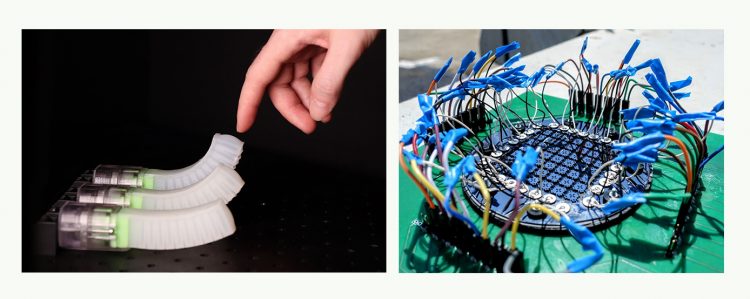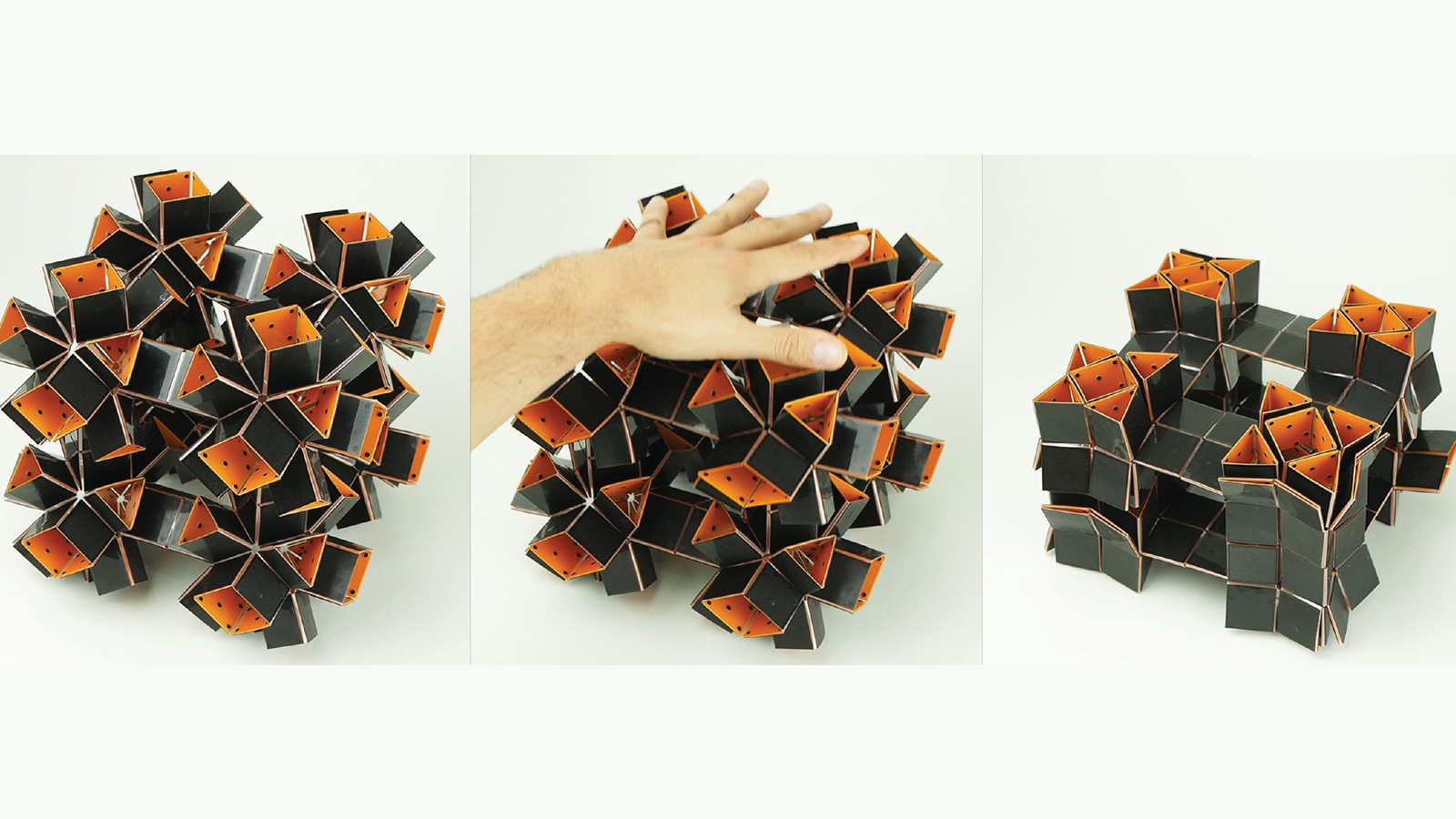Modern Mechanics
The Modern Mechanics center leverages geometry, vibrations and nonlinearities to probe and design (meta)material and mechanical systems that reconfigure, sense, and process information.
We develop design techniques for complex metamaterials that straddle the boundary between material and machine. For example, we explore how complex materials – from metamaterials to crumpled sheets – store and process information, and use elastic stresses and strains as information carriers. We integrate our work with soft robotics and explore how mechanical nonlinearities and instabilities can be used to incorporate sensing, actuation, autonomy and feedback in soft systems. Moreover, at smaller scales we develop micro- and nanomechanical resonators with ultralow dissipation, and explore new ways to control both thermal and quantum fluctuations in mechanical metamaterials.

To achieve this, the Modern Mechanis center bundles research groups with expertise on the design, fabrication and characterization of metamaterials, soft robotics, and micromechanical resonators, and generally blends experiments, simulations and theory. We operate at scales from the nanometer to centimeter, and incorporate knowledge on nonlinearities, instabilities, waves, computing and emergence with technical expertise on 3D printing, nanofabrication and finite element modeling.


